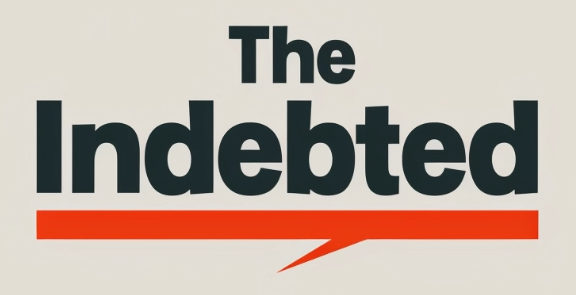Debt consolidation is an option that many people consider when they are struggling to keep up with their payments. It can be a useful tool for simplifying finances and lowering interest rates, but it is not the right choice for everyone. If you are considering debt consolidation, it is important to weigh the pros and cons to determine if it is the right choice for you.
One of the biggest advantages of debt consolidation is that it can simplify your finances. Instead of juggling multiple payments each month, you can combine all of your debts into a single monthly payment. This can make it easier to keep track of your payments and ensure that you do not miss any deadlines. Additionally, debt consolidation can often lower your interest rates, which can save you money in the long run. However, not all debt consolidation programs are created equal, and some may actually end up costing you more in the long run.
Understanding Debt Consolidation
What Is Debt Consolidation?
Debt consolidation is a financial strategy that combines multiple debts into a single, more manageable payment. This is typically done by taking out a new loan or line of credit to pay off existing debts. Debt consolidation can be a useful tool for those struggling with high-interest debt, as it can help lower monthly payments and reduce interest rates.
Types of Debt Consolidation Options
There are several types of debt consolidation options available, each with its own benefits and drawbacks. Here are some of the most common options:
-
Debt Consolidation Loan: This involves taking out a personal loan to pay off existing debts. Debt consolidation loans typically have lower interest rates than credit cards, making them a popular choice for those looking to reduce their overall interest payments.
-
Balance Transfer Credit Card: This involves transferring high-interest credit card debt to a new card with a lower interest rate. Balance transfer credit cards often offer introductory rates of 0% for a set period of time, making them a good option for those looking to pay off debt quickly.
-
Home Equity Line of Credit (HELOC): This involves using the equity in your home to secure a line of credit that can be used to pay off existing debts. HELOCs typically have lower interest rates than other forms of credit, but they also come with the risk of losing your home if you are unable to make payments.
Evaluating Your Financial Situation
When considering debt consolidation, it’s important to start by evaluating your financial situation. This includes assessing your debt and credit score considerations.
Assessing Your Debt
Before you decide if debt consolidation is right for you, it’s important to take a close look at your current debt. This includes both your total debt and the types of debt you have. Make a list of all your debts, including credit card debt, personal loans, and any other outstanding balances. Once you have a clear picture of your debt, you can start to explore your options for consolidation.
Credit Score Considerations
Your credit score is an important factor to consider when thinking about debt consolidation. A good credit score can help you qualify for lower interest rates and better loan terms, which can ultimately save you money. On the other hand, a poor credit score can make it more difficult to qualify for a consolidation loan or result in higher interest rates.
It’s important to check your credit score before applying for a consolidation loan. You can get a free credit report from each of the three major credit bureaus once a year. Review your report carefully and make sure all the information is accurate. If you find any errors, you can dispute them with the credit bureau.
In addition to your credit score, you should also consider your monthly payment and budget. Debt consolidation can help simplify your finances by combining multiple payments into one, but you need to make sure the new payment fits within your budget. You don’t want to end up with a larger monthly payment that you can’t afford.
Pros and Cons of Debt Consolidation
Advantages
Debt consolidation can offer several benefits to those struggling with high-interest debt. One of the most significant advantages is the ability to pay off multiple debts with one monthly payment. This can help simplify your finances and make it easier to manage your debt.
Another advantage of debt consolidation is that it can lower your interest rate. By consolidating your debts into a single loan, you may be able to secure a lower interest rate than what you were paying on your individual debts. This can save you money in interest charges over time and help you pay off your debt faster.
Debt consolidation can also help improve your credit utilization ratio. When you have multiple credit cards with high balances, it can negatively impact your credit score. By consolidating your debts, you can lower your credit utilization ratio and improve your credit score.
Drawbacks
While debt consolidation can be a useful tool for managing debt, it’s not without its risks and drawbacks. One potential drawback is that some debt consolidation loans may require collateral, such as your home or car. If you’re unable to make your payments, you could risk losing your collateral.
Another potential drawback is that debt consolidation loans may come with fees. These fees can add up over time and increase the total cost of your loan. It’s important to carefully review the terms and fees associated with any debt consolidation loan before you apply.
Finally, it’s important to remember that debt consolidation is not a magic solution. If you don’t address the underlying issues that led to your debt in the first place, you may find yourself back in debt again in the future. It’s important to make a plan to manage your finances and stick to it to avoid falling back into debt.
Comparing Debt Consolidation with Other Strategies
Balance Transfer vs. Consolidation Loan
When it comes to consolidating debt, two popular options are balance transfer credit cards and consolidation loans. A balance transfer credit card allows you to transfer your existing credit card balances to a new card with a lower interest rate. On the other hand, a consolidation loan is a personal loan that you can use to pay off all of your existing debts.
One advantage of a balance transfer credit card is that it often comes with a 0% introductory APR for a certain period of time, which can help you save money on interest. However, it’s important to note that after the introductory period ends, the interest rate may increase significantly. Additionally, balance transfer credit cards often charge a balance transfer fee, which can be a percentage of the amount transferred.
A consolidation loan, on the other hand, typically has a fixed interest rate and a fixed repayment term, which can make it easier to budget for. Additionally, a consolidation loan may have a lower interest rate than your existing debts, which can save you money in the long run. However, you may need to have good credit to qualify for a consolidation loan.
Debt Management Plan vs. Consolidation
Another option for consolidating debt is a debt management plan (DMP). A DMP is a repayment plan that is set up by a credit counseling agency. The agency works with your creditors to negotiate lower interest rates and monthly payments on your behalf.
One advantage of a DMP is that it can help you get out of debt faster, as your monthly payments are often lower than your current payments. Additionally, a DMP can help you avoid late fees and penalties, which can help you save money.
However, it’s important to note that a DMP typically requires you to close your credit card accounts, which can negatively impact your credit score. Additionally, a DMP may not be the best option if you have a lot of debt or if your debt is primarily from student loans or medical bills.
Making Debt Consolidation Work for You
If you have decided to consolidate your debt, there are some steps you can take to ensure that the process goes smoothly and that you achieve your financial goals. Here are a few tips to help you make debt consolidation work for you.
Budgeting and Repayment
One of the most important steps in making debt consolidation work for you is to create a budget and repayment plan. Take the time to review your income, expenses, and debt payments to determine the amount of money you can afford to put toward your debt each month. This will help you create a realistic repayment plan that fits your budget.
To make sure you stick to your budget and repayment plan, consider setting up automatic payments for your consolidated loan. This will help ensure that you make your monthly payments on time and avoid late fees or penalties.
Avoiding Future Debt
Another key to making debt consolidation work for you is to avoid taking on new debt. This means being mindful of your spending habits and avoiding overspending. Consider setting up a budget and tracking your expenses to help you stay on track.
If you are struggling with financial problems, consider seeking the help of a financial advisor or credit counselor. They can help you develop a plan to get back on track and avoid future debt.
By following these tips, you can make debt consolidation work for you and achieve your financial goals. Remember to stay committed to your budget and repayment plan, and be mindful of your spending habits to avoid future debt.





